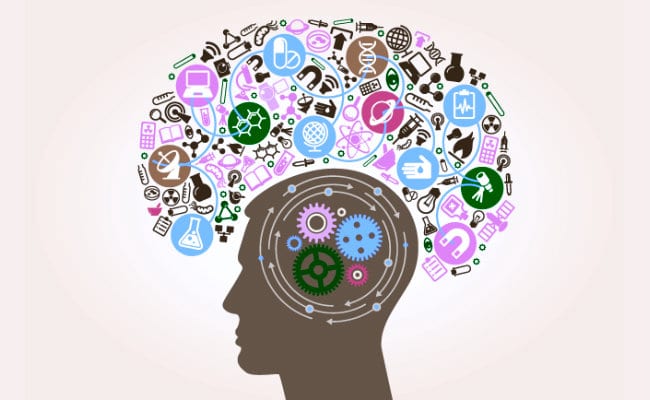"Learning" is called the process by which it is possible to acquire new knowledge from a teaching, practice or experience. This can be of different types, such as repetitive, significant, observational, receptive learning, among others.
Each of them has the elements that characterize them, but the interest on this occasion is directed towards the Significant, a David Ausubel theory who contributed enormously in the area of cognitive and educational psychology. This allowed the development of teaching techniques at the time and in later years.
What is Meaningful Learning?

According to the psychologist David Ausubel, his theory ensures that this type of learning is considered the ability to relate old information to new information and recently acquired, to be able to combine them, to expand the knowledge and rebuild it if necessary.
Being more specific, meaningful learning happens at the moment in which the new knowledge is acquired and this information has a relationship with other data that had been previously acquired. That is why it is possible to learn new ideals, skills or concepts more easily if we already had information that can be related.
La theory of Ausubel became the most representative example of this type of learning, since it allowed the development of educational techniques and with it, the work of educators to teach more effectively.
- To facilitate the acquisition of new knowledge, it is necessary to have prior information to serve as a basis.
- The information acquired must be incorporated into the mental structure and remain in the memory that allows us to understand.
- The educator must be actively involved in order to use adequate teaching techniques to stimulate this learning in students.
- Basically the old knowledge is compared and related to the new to change the structure of the same and thus obtain a new result.
- It is possible to carry out this type of learning individually or with the help of the educator or teacher.
The latter is interesting, since the individual can develop the ability to learn meaningfully and do it individually, consciously or unconsciously, or with the teacher's help. However, the important thing is that the appropriate and specific processes that characterize this learning are fulfilled, which are: correlative, derived subsumption and combinatorial and superordinary learning.
Processes of this learning

- La derivative it refers to the acquisition of knowledge that is related to another in terms of the "type" that it is and therefore combine to form the new meaning. For example, if the person knows the characteristics of an “airplane” and sees a “war plane” for the first time, they will understand that “war” are characteristics that together with “airplane” form another meaning.
- La correlative subsumption meanwhile, in a similar example, we meet a plane of golden color, something never seen before. On this occasion, it is necessary to add the possibility that the planes have different colors, which would modify the concept we have about them.
- El superordinary learning It is when we know what airplanes, boats or automobiles are but we did not know that they were "means of transport" until we learned it for any reason. Which means that we knew these concepts but we did not know that together they had a meaning.
- Finally, the combinatorial, which is characterized by being a different idea but similar to the new one, which allows it to be acquired more easily.
PREMIUM QUALITY
Ausubel also classified this learning into various types, including representations, concepts, and propositions. Each of them with its own characteristics.
- El representation learning refers to the main and indispensable, that is, the others are dependent on it. Its purpose is to attribute meanings, such as when a baby learns to represent the word "mother" with its mother.
- On the other hand, that of concepts is also part of the previous one, only in this case with the attributed concepts it is possible to have an idea about what is being talked about. For example, a child will understand by "mother" any woman who fulfills a similar function to his.
- Finally, the learning of propositions that is defined as the relationship that several words have, with which a set of meanings can be assembled that is nothing more than the sum of each of them; which allows finding new meanings.
David Ausubel and his theory
He is a psychologist and pedagogue born in New York, United States, on October 25, 1918. Ausubel studied psychology at the University of Pennsylvania, as well as studying medicine (which is why he worked as a psychiatrist) . In addition, he achieved a doctorate in developmental psychology and did relevant research on cognitive psychology.
Between 1963 and 1968, David Ausubel published the concept of meaningful learning according to his theory. Which in addition to including unique characteristics, types and processes that must be carried out; It also has some aspects that must be taken into account, such as the techniques to be used by the teacher, support materials, previous organizers, organization and factors that involve motivation.

What techniques should teachers use?
The educator must find a way that students have an interest in the activities to be carried out regardless of the subject; Likewise, a bond of trust and security must be established between the student and him.
Teachers should aim to guide the entire process with the help of the appropriate techniques so that the significant learning is met and is within cognitive parameters. The use of the examples will be of great help so that the students understand more easily.
In addition, students should be offered the ability to express their ideas and debate about them and those of others. Only in this way will they be able to significantly learn a subject that might have been difficult to teach with other methods of education.
Among the techniques it is possible to find games, mind and mind maps, pre-organizers, illustrations, among others. Where each one will have different functions and will cause different effects on the learning capacity of each individual, taking into account that each person can learn differently.
Moreover, educators need to be aware of motivational factors that come into play in this process; since according to David Ausubel, these benefit and affect learning in various aspects, for example:
- The benefits refers to the stimulation generated in the students and teachers, as well as improving the relationship of both.
- On the other hand, it can negatively affect if external factors that are not suitable for learning are considered, it can be boring if it is not executed correctly and with it, generate doubts among teachers about the techniques that are being used.
If you liked our post about meaningful learning, we invite you to share it on your networks so that other people can learn about it; as well as we also offer you the opportunity to collaborate with an expansion of content through comments; either with the inclusion of new information or by simply asking a question that allows us to detail some aspect of the subject matter.
The fascinating learning process, Ausubel's theory, very enlightening how we obtain new knowledge and this modifies the previous one that we had, and this is very dynamic, how much we have to unlearn to understand what is currently happening.
How is this technique, if music is included at the same time, to harmonize the environment and the students, to be able to take them to a new approach, with respect to what they are learning?